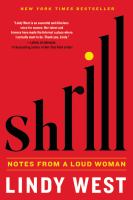In this achingly poignant young adult novel, two boys (Harry and Craig) try to break the record for the longest kiss ever. As well as following this story, the novel follows other young contemporary gay men and their relationships (online and off, family and romantic).
And here's what adds a heartbreaking level to this story: all of their adventures are watched over and commented on by a Greek chorus of gay men who have passed away of AIDS.
Beautiful, moving, and yes, heartbreaking. Must-read.
I love so much about this novel, I have to share some of my absolute favorite bits:
"We were once like you, only our world wasn't like yours. You have no idea how close to death you came. A generation or two earlier, you might be here with us. We resent you. You astonish us." (p. 2)
"If you are a teenager now, it is unlikely that you knew us well. We are your shadow uncles, your angel godfathers, your mother's or your grandmother's best friend from college, the author of that book you found in the gay section of the library. We are characters in a Tony Kushner play, or names on a quilt that rarely gets taken out anymore. We are the ghosts of the remaining older generation. You know some of our songs. We do not want to haunt you too somberly. We don't want our legacy to be gravitas. You wouldn't want to live your life like that, and you won't want to be remembered like that, either. Your mistake would be to find our commonality in our dying. The living part mattered more. We taught you how to dance." (p. 3)
"One of the many horrible things about dying the way we died was the way it robbed us of the outdoor world and trapped us in the indoor world. For every one of us who was able to die peacefully on a deck chair, blanket pulled high, as the wind stirred his hair and the sun warmed his face, there were hundreds of us whose last glimpse of the world was white walls and metal machinery, the tease of a window, the inadequate flowers in a vase, elected representatives from the wilds we had lost. our last breaths were of climate-controlled air. We died under ceilings. Either that wallpaper goes, or I do. It makes us more grateful now for rivers, more grateful for sky." (p. 49)
And more:
"There is power in saying, 'I am not wrong. Society is wrong.' Because there is no reason that men and women should have separate bathrooms. There is no reason that we should ever have to be ashamed of our bodies or ashamed of our love. We are told to cover ourselves up, hide ourselves away, so that other people can have control over us, can make us follow their rules. It is a bastardization of the concept of morality, this rule of shame. Avery should be able to walk into any restroom, any restaurant, without any fear, without any hesitation." (p. 140)
"This only makes Ryan smile more. 'I'm sorry,' he says. 'I usually don't like people. So when I do, part of me is really amused and the other part refuses to believe it's happening.'" (p. 150)
"and he hopes that maybe it'll make people a little less scared of two boys kissing than they were before, and a little more welcoming to the idea that all people are, in fact, born equal, no matter who they kiss or screw, no matter what dreams they have or love they give." (p. 193)
Beautiful. Read it NOW.









